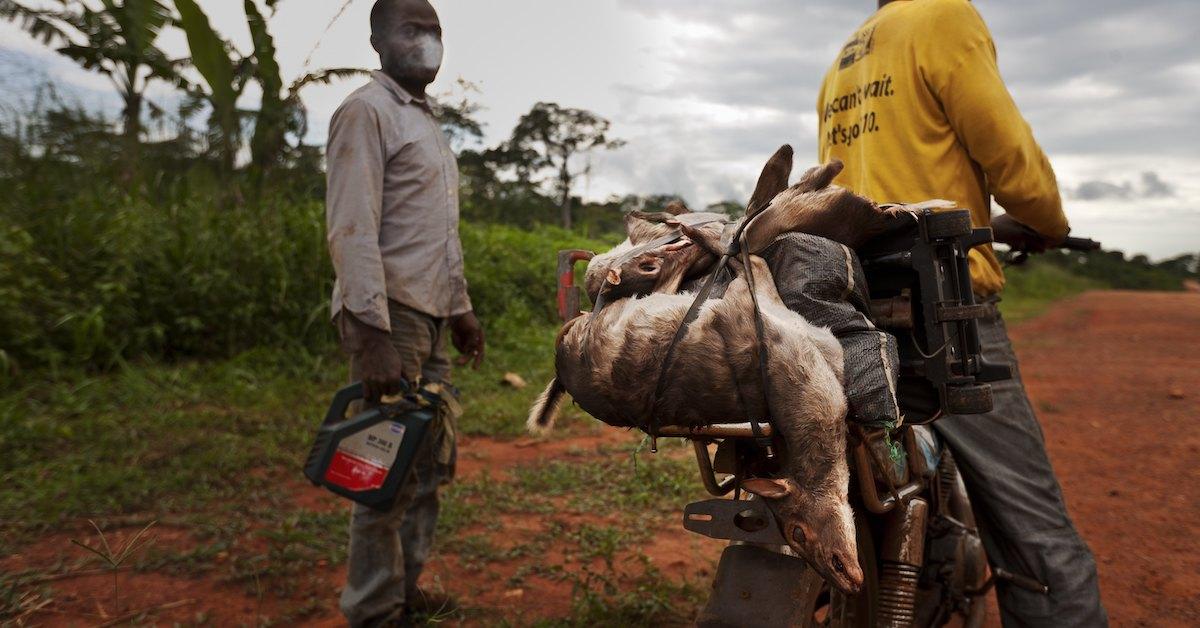Smuggled Bushmeat Could Lead To More Disease Outbreaks, Experts Say
Published Jan. 13 2022, 12:26 p.m. ET

While 2021 brought the COVID-19 vaccine, a new U.S. president, and other small victories, it was yet another year of lockdowns and social unrest. But to close out the year was a chaotic string of seemingly related incidents, that involved smuggling bushmeat into the U.S. Not only is smuggling bushmeat completely against the law, but it can also lead to serious and deadly outbreaks of fatal ailments, such as Ebola. Needless to say, that simply isn't yet another thing we need on our plate.
“Minnesota’s CBP agriculture specialists are focused on their mission to prevent entry of prohibited items from entering into the United States,” LaFonda D. Sutton-Burke, Director of Field Operations for CPB Chicago Field Office, stated in a government press release. “The sheer volume of bushmeat our specialist intercept clearly shows how they play a critical role in preventing diseases from entering the United States.”
Unfortunately, this type of crime seems to be on the rise right now.
“Just last week our agriculture specialists stopped a passenger returning from Liberia,” Augustine Moore, an Area Port Director in Minnesota, stated in the government's press release.
The passenger had reportedly been smuggling parts of a monkey from the West African country — which could create serious global problems.

What is bushmeat?
Although we have our own qualms with the meat industry, bushmeat usually doesn't refer to typical U.S. livestock. According to Star Tribune, bushmeat generally comes from wild animals such as bats, primates, antelopes, cane rats, and other animals that are rarely eaten in these parts of the world. The meat itself is usually unprocessed, and comes either raw, smoked, dried, or salted. Oftentimes, it hails from Africa, or other countries where those types of animals are generally found.
Since bushmeat is illegal in the U.S., it is oftentimes smuggled in several layers of newspaper, plastic, foil, and tape. Per Star Tribune, citizens who smuggle bushmeat often declare — verbally and written — that they were only transporting fish. Inspections, however, showed that each of the confiscations, which weighed up to 45 pounds, consisted of fish mixed with bushmeat. In the most recent confiscation, TSA officials seized over 104 pounds altogether.
So, why is this a big deal?

Why can smuggling bushmeat cause disease outbreaks?
In addition to the fact that it's cruel to eat animals — and because its illegal to kill animals used for bushmeat — smuggling and eating them can be a serious health hazard. According to the government press release, bushmeat poses a risk of spreading germs such as the Ebola virus. Although it's rare, it's incredibly deadly, and it can be spread through humans who hunter, butcher, and process meat from infected animals.
That said, CBP agriculture specialists "take the most restrictive action" to destroy any luggage containing bushmeat. According to Bring Me The News, those who smuggle bushmeat into the U.S. can face up to $250,000 fines; however, this generally only applies to repeat offenders. Oftentimes, the luggage will simply be seized and CBP agriculture specialists will take measures to educate said passengers on the dangers of smuggling bushmeat.
Hopefully this doesn't continue happening, because we really don't need another deadly virus on our plates.